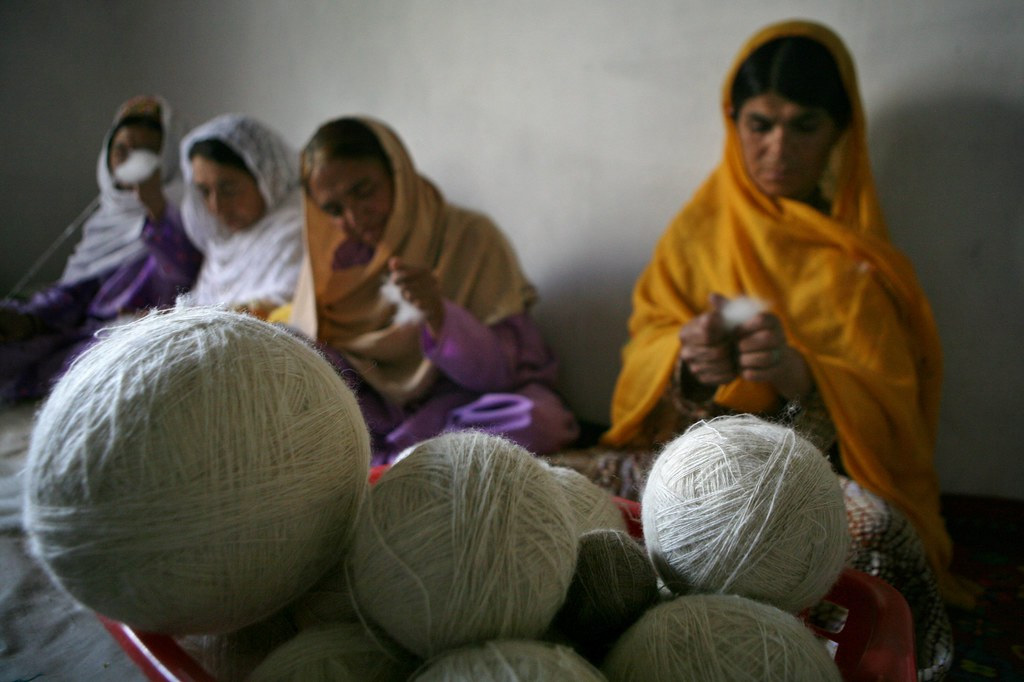Call for Papers: The Social Life of Skills, Online Workshop, 5 - 7 July, 2021
Across the global South, governments are investing in skill development and vocational education in order to drive productivity increases and address chronic problems of youth unemployment. This emphasis on skills has been amplified recently, as hopes are being attached to ‘skills-led recoveries’ to the economic downturn associated with Covid-19.
Yet, skills are not merely ingredients in a formula to enhance economic growth – they are embedded in a social, cultural, and historical context and are often sources of deep personal meaning. This online workshop, jointly organized by the School of Geography at the University of Melbourne and the Australia India Institute, aims to bring together researchers from the social sciences to discuss recent research on the ‘social life of skills,’ with a special focus on the global South. Participants will consider the ways in which social and cultural context shapes the meanings and status invested in skills, the ways in which skills are utilized, and their potential to transform lives. Questions of inequality are paramount in this discussion and due consideration will be given to how skill acquisition and deployment is experienced differently on the basis of various axes of social difference, including gender, class, location, and ethnicity.
In a 2012 paper, Simon McGrath highlighted the need for deeper theorization of the social significance of skills and skill development in global South contexts (McGrath, 2012). Together with Lesley Powell, he has called for an engagement with how skills can not only contribute towards economic growth, but also to the enhancement of capabilities and enabling people to live lives they have reason to value (Powell & McGrath, 2019). More recently, Carswell and De Neve (2018: 313) have called for explorations of ‘the social life of skills,’ which they define as ‘the social processes, relationships, and ideologies that enable (or constrain) people’s access to skills, and subsequently to employment, wages, satisfaction, and dignity.’ Such a perspective suggests a more serious engagement with questions of inequality in both the acquisition and deployment of skills; as well as the meanings and values ascribed to skills within family and community contexts.
We welcome abstracts on research in the social sciences (sociology, anthropology, human geography, development studies, political economy, etc.) related to the social aspects of skills and skill development. While the workshop is primarily focused on the global South, we also welcome papers that address skills in precarious contexts in the global North (particularly in refugee and indigenous communities), where there may be similar challenges and themes to those in the global South.
Papers that engage with the following questions are of special interest:
- How do debates in the social sciences on skills in the global North need to be re-thought to address the unique contexts and challenges of the global South?
- How do social inequalities affect access to skill development opportunities, as well as processes of skill acquisition and skill utilization?
- What is the potential of skills to inspire and empower individuals and communities, as well as to challenge social norms and stereotypes?
- What roles do skills play in social reproduction?
- What are the class-, gender-, and ethnicity-inflected meanings and values ascribed to skills and being skilled?
- What are the roles of informal, non-formal, and formal skill development in social, economic, and political life at various scales?
- What kind of ethical and normative frameworks are associated with particular skillsets – for example, normative dispositions associated with entrepreneurship or craftsmanship?
- How does social context shape the processes, meanings, and effectiveness of various pedagogical approaches to skill development, such as apprenticeships?
- How does social and economic power impinge upon the structures and practices of skill development, at local, regional, national, and international scales.
- What is the (potential) role of skills in social responses to Covid-19, climate change, and other global challenges?
Those wishing to present their work at this online workshop are asked to submit an abstract (max. 350 words) and author bio (max. 200 words) by following the link below.
A selection of relevant papers presented at the workshop will be compiled for a proposal for a special issue of a journal or an edited book. We will request that participants submit a 1500 to 3000 word draft paper in the month prior to the workshop, if they wish to be considered for the special issue. Only unpublished papers that have not been submitted elsewhere will be accepted.
Care will be taken to time this online event to allow maximum participation across time zones. However, in recognition of the challenges of presenting live in an online event, there will be the option of pre-recording presentations. Presentations will also be recorded to allow other participants to view them later if they are unable to attend at the allocated time.
An online forum will also be set up to facilitate greater discussion.
Key Dates
Please submit abstracts by the 29th of January, 2021, using the link below.
Successful applicants will be notified no later than the 12th of February 2021.
The online workshop will take place on the 5th, 6th and 7th of July 2021; 4.30pm-8pm AEST (7.30am-11am BST).
Convenors
- Dr Trent Brown, School of Geography, University of Melbourne, Australia.
- Prof Geert de Neve, School of Global Studies, University of Sussex, United Kingdom.

Image credit: Hashoo Foundation USA - Houston, TX